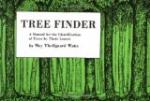The importance of nature study in the training of the child is now well recognized. The influences of such study from the hygienic, moral and aesthetic point of view are far reaching and cannot be expressed in dollars and cents. In his association with nature, the child is led to observe more closely and to know and to be fond of what is truly beautiful in life—beautiful surroundings, beautiful thoughts and beautiful deeds. He is inspired with reverence for law, order and truth because he sees it constantly reflected in all works of nature. The social instinct is highly developed and even the parents are often bettered through the agency of their children.
The only way, however, to study nature—especially plants—is to study it out of doors. Our present tendency to gather in cities demands the upbuilding influences of trips into the open in order to equip the child mentally and physically to face the world and its work with the strength and tenacity characteristic of the country-bred. Moreover, the study of objects rather than books is an axiom in modern education and here, too, we can readily see that the best way to study trees is to take the pupil to the trees. Such studies are more lasting than book study because they emphasize the spirit and the goal rather than the petty facts.
Educators and parents are now recognizing the value of outdoor trips for their children and are beginning to indulge in them quite frequently. In many instances teachers about to take out their children for a day have inquired of the writer how to go about giving a general field lesson when they reached the park or woodland. The purpose of this chapter is to answer such a question and yet it is evident that it cannot be answered completely. What to observe out doors and how to present one’s impressions is a broad question and varies with the knowledge and ability of the teacher as well as with the age and experience of the children. The how and the what in nature study is of greater import than the hard, dry facts and that must be left entirely to the teacher. A few suggestions, however, may not be amiss:
1. General observations with a view to character
building: First of all
it is important to remember
that the great value of all tree and
nature study is the inculcation
in the minds of the children of an
appreciation and love for
the beautiful. Inspiring them to love
trees generally means more
than teaching them to know trees. Mere
facts about trees taught in
an academic way are often no more
lasting than the formulae
in trigonometry which most of us have long
ago forgotten. The important
thing is that permanent results be left
and nothing else will produce
such lasting impressions as the study
of trees out of doors.
[Illustration: FIG. 153.—Trees Have Individuality.]




